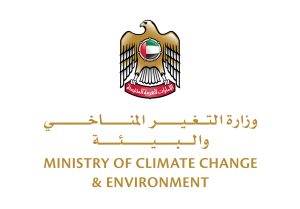ABU DHABI/WAM
As part of its efforts to enhance agricultural production and increase its contribution to strengthening national food security in the UAE, the Ministry of Climate Change and Environment (MOCCAE) has announced the launch of a programme to improve the efficiency of agricultural advisory services (agricultural extension).
The programme aims to improve the skills of agricultural extension agents or guiding staff and develop their professional capacities. It also works towards improving their communication skills to enable them to transfer technology, and share modern farming techniques, ensuring increase of production.
The programme encompasses specialised training courses about soil and irrigation, crop and vegetable production, fruit production, pest prevention and control, beekeeping and honey production.
It also features lectures and workshops to enhance the technical skills and competencies of agricultural extension agents. Additionally, the programme includes field courses to provide opportunities for applying theoretical knowledge in a practical context and developing communication skills and enhancing confidence.
Dr. Mohammed Salman Al Hammadi, Assistant Under-Secretary of the Food Diversity Sector at MOCCAE, said: “The agricultural extension efficiency improvement programme comes as part of our ongoing commitment to support the sustainability of national farms in the UAE aimed at reinforcing and growing the sector in the future. The programme aims to develop a specialised path for all agricultural extension agents covering the main fields in the sector. Through this, we seek to build capacity and competency of agricultural extension, which in turn, would contribute to enhancing local agricultural production and support the transformation of national food systems into more sustainable systems.”
He pointed out that the agricultural extension efficiency improvement programme is scheduled to be implemented in collaboration with partners, research centres, and global experts.
The efforts by the Ministry of Climate Change and Environment include developing an annual plan for agricultural guidance, aimed at monitoring and supporting farmers in enhancing crop production and protecting the crops from pests. This initiative is based on establishing a timetable for the service operations of trees and cultivation seasons for each crop.
The plan focuses on date palm crops, fruits, vegetables, fodder, bees, and honey production. It also includes operations related to irrigation, fertilization, and land reclamation.
The plan also involves the preparation and development of technical reports and reports on the advisory visits to farms, including data analysis, providing recommendations, and documenting results to ensure performance improvement and meet the farmers’ needs.
Al Hammadi said that the Ministry, through the annual plan for agricultural guidance, aims to enhance communication between extension agents and farmers and to prepare a schedule for periodic visits to farms. He added that a plan for regular meetings with farmers will be launched to discuss the challenges they face. This will ensure better crop yields and also set precise standards and objectives to improve the quality and efficiency of agricultural guidance programmes, thereby contributing to enhancing farmers’ satisfaction.
 The Gulf Time Newspaper One of the finest business newspapers in the UAE brought to you by our professional writers and editors.
The Gulf Time Newspaper One of the finest business newspapers in the UAE brought to you by our professional writers and editors.
